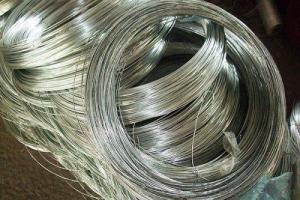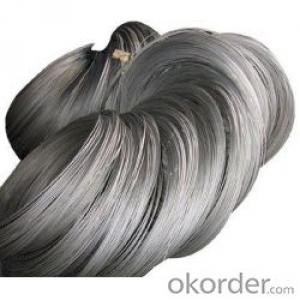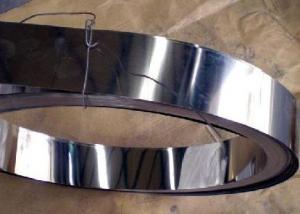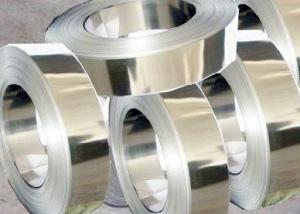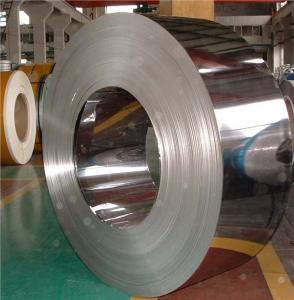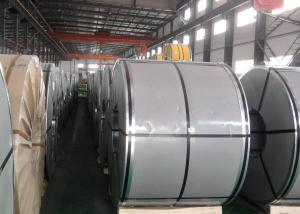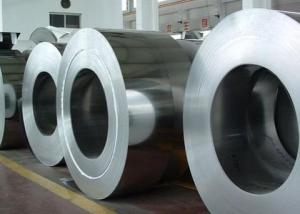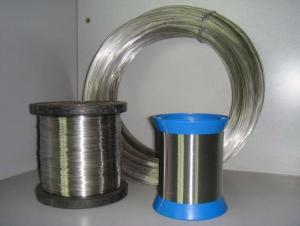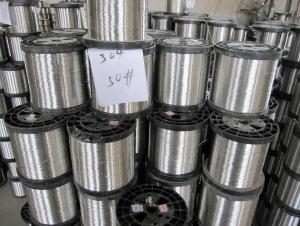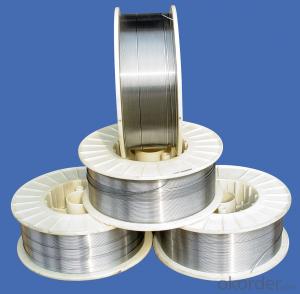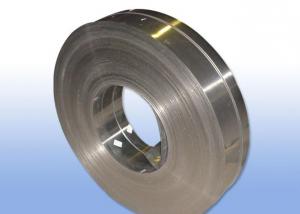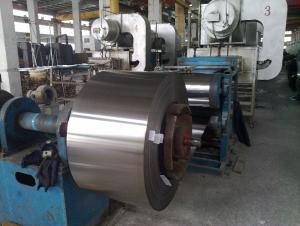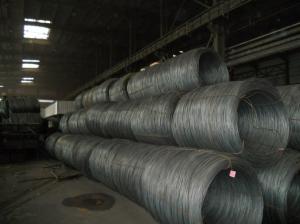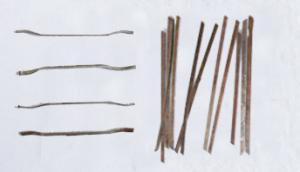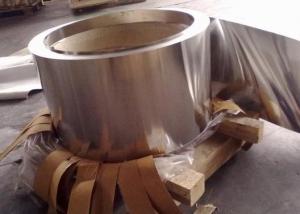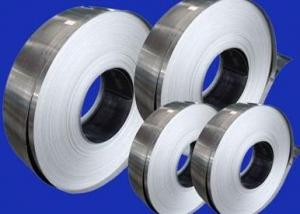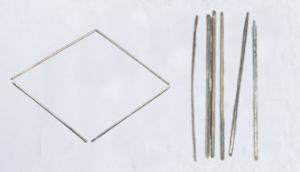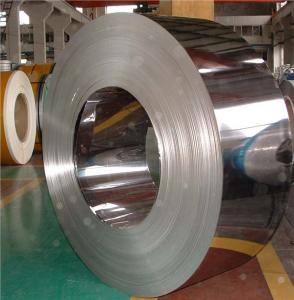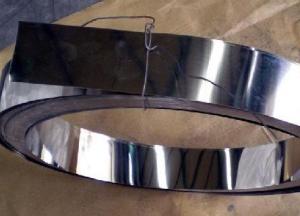Hot Rolled Reinforcing Steel Bar in Coil
- Loading Port:
- Tianjin
- Payment Terms:
- TT OR LC
- Min Order Qty:
- 100 m.t.
- Supply Capability:
- 5000 m.t./month
OKorder Service Pledge
OKorder Financial Service
You Might Also Like
Hot Rolled Reinforcing Steel Bar in Coil
Main Structure of Reinforcing Steel Bar in Coil
Standard: AISI, ASTM, BS, DIN, GB, JIS, ASTM
Grade: HRB400
Diameter: 6mm-15mm
Length: in coil
Type: steel rod price
Size: 6.5mm-10mm
Technique: hot rolled
Packing: in coil
Chemical Composition: C, Si, Mn, P, S, (B)(Cr)
Shape: round
Secondary Or Not: Non-secondary
Quality: prime quality
Main Features of Reinforcing Steel Bar in Coil
Type | Deformed Steel Bar/ Hot Rolled Ribbed Bar/ Steel Rebar |
Standard grade | GB ( HRB 400/ HRB500) BS4449-1997(460B) BS4449-2005(B500B) KS SD400/500
ASTM A 615 (GR40/GR60) |
Shape | Ribbed bars |
Quality | Prime quality |
Technique | Hot rolled |
Size of diameter | 5.5-40mm, as requested |
Length | 6~12m, as requested |
Delivery time | 10-30 days, according to the quantity |
Note | Customized service is available (for diameter, length and chemical components etc.). |
Our Services
1. Offer customers 24/7 service, whenever you need us, we are always here for you.
2. Immediate response. Your any inquiry will be replied within 24 hours.
3. Support small order quantity. For the first time cooperation customers, we can send you less quantity for trial order.
4. Support third party inspection company to inspect and check quality and quantity before delivery.
FAQ:
Q:How about your quality?
A:Quality is our culture, our products has to be checked with engineer, QC and sales, customer together, The products’ qualified rate need to be over 95%.
Picture:
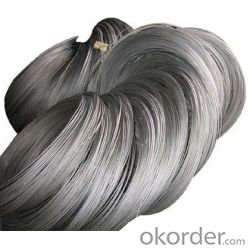
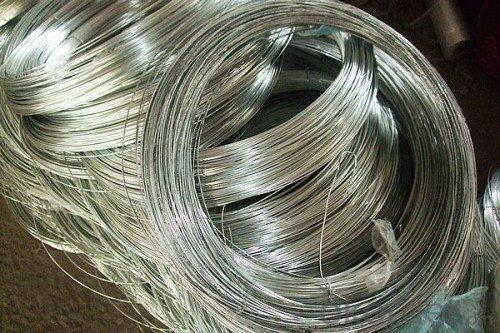
.
- Q:Can stainless steel wire hooks be used for hanging heavy objects?
- Yes, stainless steel wire hooks can be used for hanging heavy objects. Stainless steel is known for its strength and durability, making it suitable for supporting heavy loads.
- Q:Is the inner and outer joint of the water pipe good with copper or stainless steel?
- Choose between these two materials. Use stainless steel as well.
- Q:What are the different types of stainless steel wire used in heat exchangers?
- There are various types of stainless steel wire used in heat exchangers, including 304, 316, 321, and 410 grades. These different grades offer varying levels of corrosion resistance, strength, and temperature resistance, allowing them to be suitable for different heat exchanger applications.
- Q:How does stainless steel wire resist chemicals?
- Due to its unique composition and properties, stainless steel wire exhibits resistance to chemicals. Its primary component is iron, which is combined with chromium, nickel, and other elements to form an alloy. The addition of chromium results in the formation of a protective layer called the passive layer, which safeguards the wire from chemical penetration and corrosion. The passive layer remains stable and has the ability to repair itself. Even if it sustains scratches or damage, it swiftly reestablishes in the presence of oxygen. This characteristic enables stainless steel wire to maintain its chemical resistance, even in aggressive surroundings. Furthermore, the inclusion of nickel in the alloy further enhances the wire's ability to withstand chemicals, particularly acids. Stainless steel wire is renowned for its exceptional resistance to corrosion, making it suitable for various applications across industries such as chemical processing, petrochemical, pharmaceutical, and food processing. It can endure exposure to a wide range of chemicals, including acids, alkalis, solvents, and even some highly reactive organic compounds. This resistance to chemicals not only prolongs the lifespan of stainless steel wire but also guarantees its integrity and performance in demanding environments where other materials may falter.
- Q:Can stainless steel wire be used for sieving?
- Yes, stainless steel wire can be used for sieving. It is a common material used in sieve mesh due to its durability, corrosion resistance, and ability to withstand high temperatures. Stainless steel wire ensures accurate and efficient sieving of various materials in industries such as mining, pharmaceuticals, and food processing.
- Q:Can stainless steel wire be used for electrical conductivity?
- Yes, stainless steel wire can be used for electrical conductivity. While stainless steel is not as conductive as other metals like copper or silver, it still has a relatively high electrical conductivity and can be used in various electrical applications.
- Q:Can stainless steel wire be used for wire strainers?
- Wire strainers can indeed utilize stainless steel wire. Stainless steel is renowned for its durability, resistance to corrosion, and impressive strength, rendering it an optimal material for a wide range of applications, including wire strainers. Industries such as food processing, pharmaceuticals, chemical processing, and wastewater treatment regularly employ stainless steel wire strainers due to their ability to endure harsh environments and extreme temperatures. The non-reactive properties of stainless steel guarantee that it will not contaminate the materials being strained, providing a secure and dependable choice for wire strainers. Furthermore, stainless steel wire can be effortlessly molded and woven into various mesh sizes, enabling efficient straining of diverse particle dimensions.
- Q:Can stainless steel wire be used outdoors?
- Yes, stainless steel wire can be used outdoors. Stainless steel is known for its corrosion resistance, making it suitable for various outdoor applications such as fencing, hanging signs, and gardening.
- Q:What are the common uses of stainless steel wire in the water treatment industry?
- Various purposes in the water treatment industry rely heavily on the utilization of stainless steel wire. A popular application involves the construction of filtration systems, where stainless steel wire mesh screens are commonly employed to separate solid particles from water during the filtration process. The exceptional corrosion resistance of stainless steel ensures that the wire remains intact when exposed to water or chemicals, making it the perfect choice for long-term usage in water treatment facilities. Another significant role of stainless steel wire in the water treatment industry lies in the production of filter cartridges. These cartridges serve the purpose of eliminating impurities and contaminants from water. The flexibility and strength of stainless steel wire facilitate the creation of durable and efficient filter cartridges that can endure high pressure, maintain their shape, and remain intact over time. Additionally, stainless steel wire is also extensively used in the construction of water treatment equipment such as pumps and valves. These crucial components necessitate materials capable of withstanding the harsh conditions experienced during water treatment processes, including exposure to chemicals, high temperatures, and pressure. Stainless steel wire offers the requisite strength, corrosion resistance, and durability required for these applications, ensuring the dependable and efficient operation of water treatment systems. Furthermore, stainless steel wire finds application in the production of screens for intake structures and water intakes. These screens effectively prevent unwanted materials such as debris and algae from entering water treatment facilities, thereby safeguarding the equipment and preserving the efficacy of the treatment process. Overall, stainless steel wire stands as a versatile and indispensable material in the water treatment industry. Its corrosion resistance, durability, and strength render it suitable for a wide range of applications, encompassing filtration systems, filter cartridges, equipment construction, and intake screens. By harnessing the potential of stainless steel wire, the water treatment industry can guarantee the effective and efficient treatment of water, thereby contributing to the provision of clean and safe water for various purposes.
- Q:What are the different types of stainless steel wire connectors?
- There are several different types of stainless steel wire connectors available in the market. Some of the commonly used types include: 1. Wire nuts: These are small, cone-shaped connectors that are used to join two or more wires together. They are typically used in residential and commercial electrical applications. 2. Crimp connectors: These connectors are used to join two wires by crimping or compressing them together using a crimping tool. They provide a secure and reliable connection and are commonly used in automotive, marine, and industrial applications. 3. Twist-on connectors: Also known as wire caps or wire nuts, these connectors are designed to twist onto the ends of wires, creating a secure connection. They are commonly used in residential electrical applications. 4. Terminal blocks: These connectors are used to connect multiple wires together in a single location. They typically consist of a plastic or metal block with screw terminals that allow for easy and secure wire connection. 5. Butt connectors: These connectors are used to join two wires end-to-end. They typically consist of a metal tube with an insulating sleeve that is crimped onto the wires, providing a secure and insulated connection. 6. Splice connectors: These connectors are used to join two wires in a straight line, without any overlapping. They typically consist of a metal or plastic connector that is crimped onto the wires, providing a secure and low-profile connection. 7. Push-in connectors: These connectors allow for quick and easy wire connection without the need for any tools. They typically consist of a plastic housing with metal contacts that grip onto the wire when inserted. These are just a few examples of the different types of stainless steel wire connectors available. The specific type of connector to use will depend on the application and the specific requirements of the project.
1. Manufacturer Overview |
|
|---|---|
| Location | |
| Year Established | |
| Annual Output Value | |
| Main Markets | |
| Company Certifications | |
2. Manufacturer Certificates |
|
|---|---|
| a) Certification Name | |
| Range | |
| Reference | |
| Validity Period | |
3. Manufacturer Capability |
|
|---|---|
| a)Trade Capacity | |
| Nearest Port | |
| Export Percentage | |
| No.of Employees in Trade Department | |
| Language Spoken: | |
| b)Factory Information | |
| Factory Size: | |
| No. of Production Lines | |
| Contract Manufacturing | |
| Product Price Range | |
Send your message to us
Hot Rolled Reinforcing Steel Bar in Coil
- Loading Port:
- Tianjin
- Payment Terms:
- TT OR LC
- Min Order Qty:
- 100 m.t.
- Supply Capability:
- 5000 m.t./month
OKorder Service Pledge
OKorder Financial Service
Similar products
New products
Hot products
Hot Searches
Related keywords
